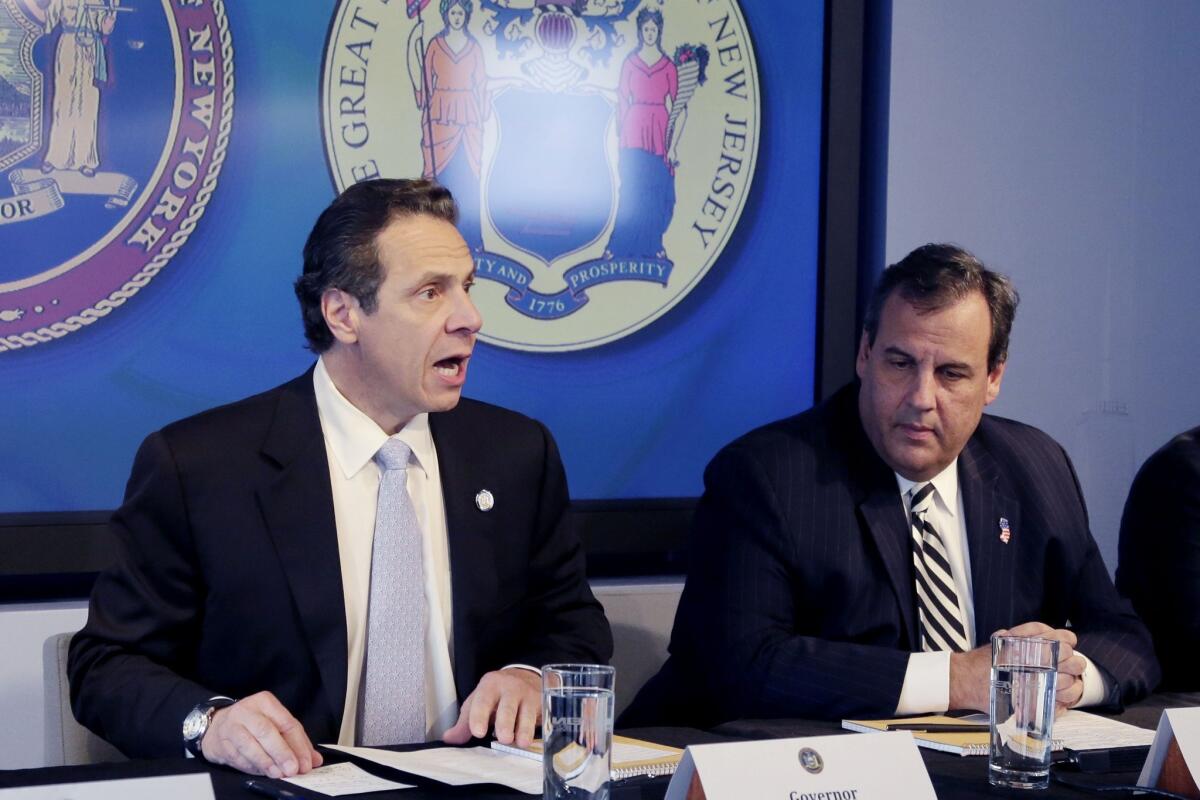Disease outbreaks in U.S. have history of government infighting

- Share via
Reporting from Washington — The tussle between state and federal authorities over whether to quarantine travelers coming to the U.S. from the West African countries at the center of the Ebola outbreak fits a familiar pattern.
Indeed, clashes between federal and local governments over epidemics are a common feature of American history, according to epidemiologists.
So too is debate over the proper use of the government’s policing powers to quarantine the sick and those at risk of infection.
“One of the key ingredients of an epidemic in this country is this internecine fighting,” said Dr. Howard Markel, a historical epidemiologist at the University of Michigan.
Confronting disease outbreaks has historically been a local responsibility, as state and local governments have had authority over public health.
But in the late 19th century, Congress passed legislation to expand federal authority to impose quarantines amid public concern that local authorities were not acting forcefully enough to confront an outbreak of cholera.
Less common are efforts by the federal government to restrain local health authorities, as the Obama administration is trying to do by urging governors not to impose strict quarantines on health workers and others coming to the U.S. from West Africa.
“This is very unusual,” Markel said.
Public health experts have strongly decried moves by the governors of New York, New Jersey and other states to impose the new quarantines.
Not only will they discourage health workers from going to West Africa, they may encourage other countries to put unnecessary restrictions on U.S. travelers, said Jennifer Nuzzo, an epidemiologist at the UPMC Center for Health Security.
“This sets a very bad precedent,” Nuzzo said, noting that Americans were enraged when China quarantined a group of visiting American students following an outbreak of swine flu in the U.S. and Mexico five years ago.
Nuzzo and others said the abuse of quarantining authority carries another risk: Some people who have been exposed to Ebola may avoid public health authorities, further complicating efforts to prevent the spread of the disease. “People need to want to comply. That is key,” she said.
Public health authorities have learned over the years that a less confrontational approach can be more effective, said Judith Leavitt, a medical historian at the University of Wisconsin who has chronicled public responses to epidemics in U.S. history.
In Milwaukee, for example, a smallpox outbreak in 1894 spiraled out of control when the local health commissioner tried to forcibly remove potentially infected people from their homes, stirring at times violent resistance to the authorities. “Pretty soon the public health department couldn’t do anything,” Leavitt said.
Three decades later, the city had learned its lesson. Local authorities had far more success controlling a smallpox outbreak in 1925 by focusing on educating residents about the disease and enlisting their help in controlling it.
“In general, there is now more of an understanding of how to do effective public health work,” Leavitt said.
For more healthcare news, follow @noamlevey
More to Read
Sign up for Essential California
The most important California stories and recommendations in your inbox every morning.
You may occasionally receive promotional content from the Los Angeles Times.











